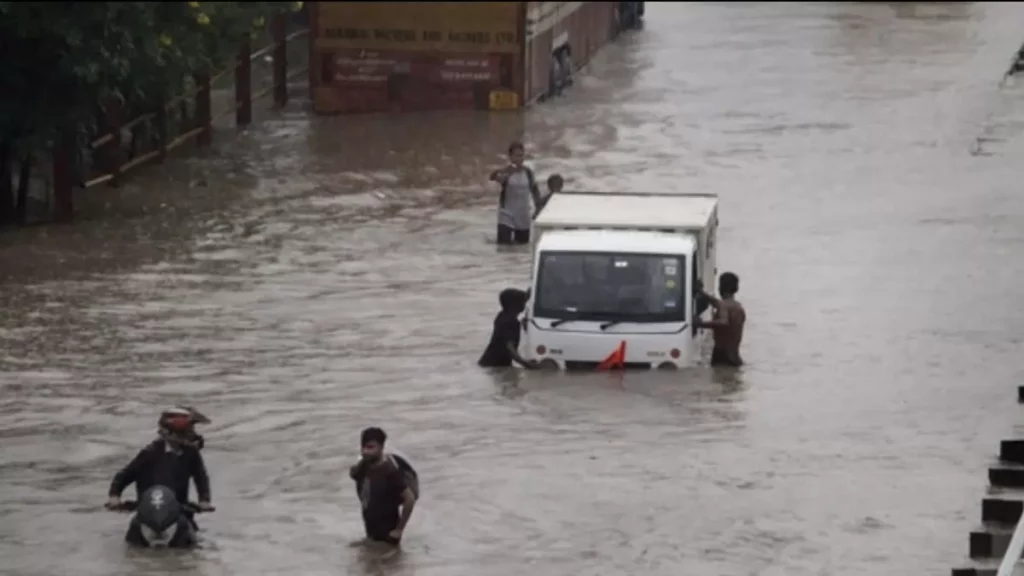In the heart of Southeastern Ghana, where agricultural traditions flourish amid a deep reverence for the land, recent events have highlighted the timeless interplay between nature and humanity. Here, the earth cradles age-old customs, and the local culture harmonises with the environment, creating a unique bond. The region recently faced an unrelenting deluge as a series of floods, initiated by the discharge of water from the Akosombo and Kpong Dams into the Volta River, which coincided with heavy rainfall during the current rainy season. In this corner of Ghana, the connection to the land runs deep, echoing through generations of farmers, who cultivate the soil to nourish their families and the nation. Floods, however, serve as a stark reminder of the fragile balance between human existence and the capricious forces of nature.
According to CRISIS24, an online report channel, the discharge of surplus water from the dams began in mid September and had resulted in extensive flooding along the lower banks of the Volta River. As of their latest report, officials have confirmed that over 8,000 individuals have been displaced by the flooding, with the Volta Region bearing the brunt of the impact. The South, Central, and North Tongu districts in the Volta Region are among the most severely affected areas. Numerous communities have been cut off due to submerged roads, leading to water shortages, power outages, and disruptions to essential services in the region.
According to the British Broadcasting Corporation (BBC), a female farmer, Awusife Kagbitor, anxiously surveys her collapsed, submerged home in Mepe, Volta Region, Ghana. In a matter of minutes, water from a nearby stream had inundated her three bedroom house, rising to neck level while her son braved the rising waters to save her and his younger siblings. The 56-year-old farmer is among the countless flood victims in Southeast Ghana, grappling with a devastating disaster. Tearfully, she reveals that they were caught off guard and unable to salvage anything. Her entire farm and 14-year-old house are now underwater, leaving her with only the clothes she could gather. She laments, “It took me about 14 years to build this house – there is nowhere to go, there is no other land to build on”, highlighting the profound loss.
BBC News further stated that, since the onset of flooding, as estimated by the National Disaster Management Organisation (NDMO), eight districts have been affected. Numerous homes have been entirely submerged, and authorities are now beginning to evaluate the flood’s repercussions. In the area visited by a correspondent of the BBC news channel, about a quarter of the Mepe community has been severely impacted, with flooding affecting toilet facilities, cemeteries, and refuse dumps, heightening concerns about disease outbreaks. Additionally, essential services such as water and electricity no longer reach the affected regions. The extensive flooding has also engulfed tracts of land, including farms and communities located downstream of the Akosombo and Kpong dams, amplifying the scale of the disaster.
This dire situation echoes across nearly 26,000 individuals, who have been displaced by floods triggered by the controlled release of excess water from the Akosombo and Kpong hydroelectric dams, located near the southern edge of Lake Volta. Additionally, Golden Exotic Limited, Ghana’s leading banana exporter, has reportedly suffered significant infrastructural damages amounting to approximately half a million dollars due to the excess water release from the Akosombo Dam. The floods have submerged 45 hectares of farmland and resulted in the loss of an estimated 44,528 banana bunches. As reported by Joy Online News, the Managing Director of Golden Exotics Limited, Benedict Rich, has emphasised that the company’s supply chain has been severely disrupted. This disruption, occurring during the peak harvesting season, has hindered their ability to export more than 2,000 tonnes of bananas weekly. As reported by Joy Online News, the impact of flooding goes beyond human communities, encompassing the diverse ecosystems, trees, wildlife, insects, endemic species, and domestic animals in the affected areas.
The rapid loss of their habitats due to floods poses a grave threat. This reverberates throughout the ecosystem, jeopardising its ability to provide essential services like clean drinking water and sustainable forest product harvesting. Furthermore, aside from eroding topsoil, floodwaters carry sediments downstream, causing riverbeds to clog. This further degrades water quality, putting aquatic life and the local population’s well-being at risk. An environmental professional and Graduate Public Service Intern at the Office of Environmental Justice, James Mensah, shed light on the often overlooked victims of flooding: the intricate ecosystems and biodiversity in these regions. Mensah underscored a silent danger carried by floodwaters – pollutants, including pesticides, agricultural nutrients, industrial chemicals, sediments, and hazardous wastes.
These pollutants infiltrate rivers, leading to severe water quality decline and endangers the lives of aquatic species and the livelihoods of those who rely on these rivers. In the face of this devastating flooding, Ghana stands at a crossroads, where the delicate equilibrium between humanity and nature is tested. The heart-wrenching stories of individuals like Awusife Kagbitor and the silent suffering of intricate ecosystems underscore the urgency of collective action. As we reckon with the losses and challenges brought by these floods, we must look beyond immediate relief efforts and work towards long-term solutions. Sustainable land management, effective flood control measures, and climate adaptation strategies are no longer mere options; they are imperatives for the lessons learned from this crisis should guide us in safeguarding our communities, our environment, and our future.



